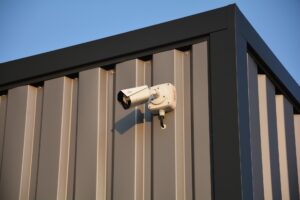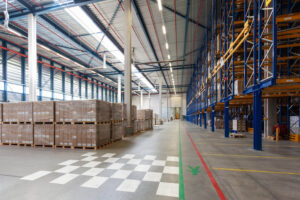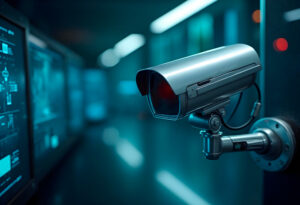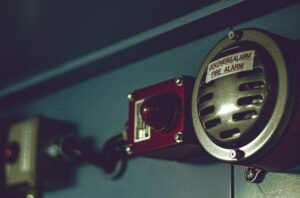In today’s fast-paced and interconnected world, the need for robust security measures is more important than ever. With rising concerns about unauthorized access to sensitive areas, businesses, institutions, and even homes are looking for more reliable ways to protect their spaces and information. This is where access control comes into play.
In this blog post, we will dive into the key features of access control systems, explore how they are shaping the future of security, and discuss why relying on DIY solutions is not the best approach for safeguarding valuable assets. Whether you are a business owner, a security manager, or someone interested in improving your home security, this post will provide you with the essential knowledge you need.
Key Takeaways
- Access Control regulates and monitors who can enter specific areas, ensuring only authorized individuals are allowed in.
- It helps protect sensitive data, assets, and personal information, especially in industries like healthcare, finance, and government.
- Modern access control systems are integrated with advanced technology like biometrics, key cards, and mobile devices.
- DIY solutions are often inadequate for critical security needs; professional, tailored systems offer more reliability and security.
- Access control plays a crucial role in minimizing security risks and maximizing safety for both businesses and individuals.
Overview
Access control refers to the selective restriction of access to a place or system. In a modern context, it is a key component of an integrated security system that helps ensure only authorized personnel are allowed to enter a particular area or use specific resources. But what does access control do? Simply put, it regulates who can access certain areas, protecting assets and sensitive information. This system works through various mechanisms, including physical barriers (doors, gates) and electronic solutions like key cards, biometric scans, or even facial recognition.
Over the years, access control has evolved from traditional lock-and-key systems to more sophisticated, tech-driven solutions. Today, businesses, institutions, and individuals alike depend on what access control does to secure sensitive areas, protect critical infrastructure, and comply with privacy and security regulations. The growing reliance on advanced technology makes access control more efficient, secure, and adaptable than ever before.

What Does Access Control Do?
Access control serves as the gatekeeper of physical security. By defining and restricting access to certain areas, it helps prevent unauthorized entry and protect valuable assets. But what does access control do in practical terms? It grants access to only those individuals who are authorized and denies access to others. This ensures that only trusted personnel can access restricted zones, providing a vital layer of protection.
In a business setting, for example, what does access control do to secure operations? It ensures that sensitive data and equipment are only accessible by the right people, enhancing overall security and reducing the risk of theft or data breaches. With access control in place, businesses can better manage who enters their premises and at what times, offering a higher level of control over their security infrastructure.
There are various types of access control systems, including:
- Traditional Lock-and-Key: The oldest form of access control, where physical keys are issued to authorized personnel.
- Electronic Access Control: This system uses key cards, fobs, or PINs to grant or deny access to certain areas.
- Biometric Access Control: Systems that use fingerprint, retina scan, or facial recognition for authentication.
- Mobile Access Control: With smartphones becoming ubiquitous, many modern systems now allow users to unlock doors or gates with their mobile devices, often via Bluetooth or Wi-Fi.
Each of these systems offers varying levels of security, but all of them rely on the core concept of restricting access to the right individuals and keeping unwanted guests out.
Why Is Access Control Important?
In an age where security breaches can result in significant financial losses, access control has become indispensable for organizations of all sizes. Below are some key reasons why access control is so critical:
1. Protects Sensitive Data
Sensitive information—whether personal, financial, or intellectual—needs to be kept safe. Access control helps ensure that only authorized personnel can access this data, reducing the risk of data theft or unauthorized leaks.
2. Prevents Theft and Vandalism
Access control systems help prevent theft and vandalism by controlling who enters secure areas. Whether it’s a warehouse full of inventory or a secure data center, limiting access to those with the proper authorization is a proven way to reduce security risks.
3. Compliance with Regulations
Many industries are governed by strict regulations regarding data security, privacy, and access to certain areas. Access control plays a vital role in helping organizations meet these compliance requirements, such as HIPAA in healthcare or GDPR in the EU.
4. Enhanced Audit Trails
Modern access control systems generate detailed logs of who entered a specific area and when. This provides valuable insights in case of a security incident, enabling quicker investigation and resolution.

The Risks of DIY Security Solutions
While DIY security options may seem like a cost-effective solution, they often fall short when it comes to handling complex security needs. Here’s why:
Lack of Customization
DIY systems are often one-size-fits-all solutions. They may not meet the unique needs of your property, organization, or building. Whether you need a specialized biometric solution, or integration with other security systems like alarms or surveillance cameras, professional services can offer tailored solutions.
Inadequate Support
Professional access control providers offer ongoing support, ensuring your system is up to date and functioning properly. DIY systems often lack customer support and maintenance, leaving you vulnerable to system failures or potential security gaps.
False Sense of Security
DIY systems may offer basic features like keycard access or simple PIN codes, but these are often not enough to secure highly sensitive areas. For critical locations, like server rooms or financial institutions, a more sophisticated, professional solution is essential.
The Benefits of Professional Access Control Solutions
Investing in a professional access control system ensures that you have a high-quality, customized solution that meets your specific security needs. Some of the advantages include:
- Scalability: Professional systems can grow with your needs, whether you’re adding new areas to secure or increasing the number of users.
- Enhanced Security Features: Advanced security features such as biometric verification, mobile access, and real-time monitoring provide higher levels of protection.
- Integration with Other Systems: A professional access control system can be seamlessly integrated with surveillance cameras, alarms, and other security technologies for a comprehensive security solution.
At Ai Security, we understand that each property or business has unique security requirements. Access control is a crucial element in ensuring the safety of your assets, people, and data. Whether you need a simple solution for a small office or a comprehensive security system for a large enterprise, our experts can provide the right system for you.
Want to know more about what access control does for your business or home? Reach out to Ai Security at Vigilant House, 1155 London Rd. Leigh-on-Sea, SS9 3JE, or call us at 01702 476700. Let us help you take the next step in securing your space with a tailored, professional solution.
FAQs
Q.What is the most common type of access control system?
A.The most common types are key cards or PIN-based systems, but biometric access control (like fingerprints or facial recognition) is becoming increasingly popular due to its added security.
Q.What does access control do in a workplace?
A.In the workplace, access control limits entry to sensitive areas such as server rooms, HR departments, or financial offices. It ensures that only authorized employees can access these spaces.
Q.Can access control systems be integrated with other security measures?
A.Yes! Modern access control systems can be integrated with other technologies like surveillance cameras, alarm systems, and even fire or emergency alarms to offer comprehensive security.
Q.How secure are biometric access control systems?
A.Biometric systems are among the most secure access control solutions because they rely on unique physical characteristics (such as fingerprints or facial features) that are nearly impossible to replicate.
Conclusion
As we’ve seen, access control plays a pivotal role in modern security systems. Whether you’re protecting physical assets, sensitive data, or ensuring compliance with industry regulations, access control helps you maintain control over who enters your property. But it’s crucial not to rely on DIY solutions when it comes to safeguarding what matters most.












